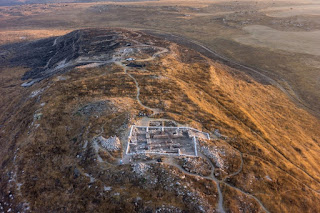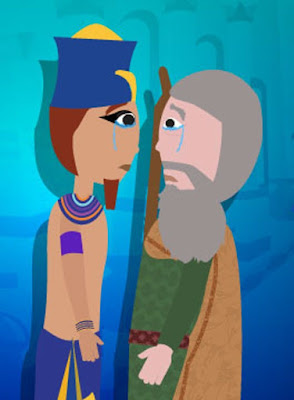Before the Monarchy
Life in Israel before the institution of the monarchy was completely different than anything that the people of Israel had ever experienced before.
Up to this point, they had been under the rule of Pharaoh and
grown as a nation in that way. Through the direction of God, Moses led them
from that bondage and into the wilderness where they would, of their own doing,
spend the next forty years.
As we come upon the scriptures of Joshua, Judges, and Ruth, we
see the way in which the people that God had led out would have to begin to
live.
“In all of this Israel had the promise that God had already given them everything that they would gain. the fact that the land is something Yahweh is “giving” or “has given” to Israel (vv. 2, 3, 11, 13, 15), or that Moses already gave them (vv. 14, 15)” (Hamilton p. 19).
Hamilton mentions this certainty when he shows that the promises
of God, are “a perfect of certitude, a perfective
of confidence, a perfective future—a means of expressing a vivid future when
the action is considered “as good as done.” God’s promissory word is “as good
as done”. (Hamilton p. 31).
One of the first issues that we see the children of Israel encounter
is their responsibility in these promises. As mentioned, up to this point Israel
had everything done for them. In Egypt they had a Pharaoh to “tell them what to
do”, and in the wilderness, they walked around being led by a pillar and by
Moses. (Exodus 13:21)
At the entry of Canaan, they were now in a place where they
would have to be, not only accountable for their actions, be responsible for
their advancement. The promises were assured, but “the promises of God do not negate human
responsibility; rather, they advance it”. (Hamilton p. 22)
The second problem that the Israelites
encountered came into an alarming realization at the death of Joshua. When
their leader Moses dead, he had set in place a successor but when Joshua passed
there was no figure of authority in place, leaving them to “fend for
themselves”.
Hamilton explains that “Unlike the era
of Joshua, no one individual is dominant enough to cast a shadow over the
entire book. In fact, what does cast a shadow over Judges is the absence of
such a leader”. (Hamilton p. 97)
This vacuum of leadership created by
the death Joshua led to all sorts of challenges. Part of this lack of
leadership ends up turning the once unified people into people that are
constantly at odds with one another. We can see this vividly by looking at the
bookends of the book of Judges. “A book that starts with a reference to an
offensive war by a united nation against a common enemy end with a reference to
that same nation at war with itself’. Hamilton goes on to show the extent of
this damage by pointing out that, “Benjaminites, part of the family of God,
have become Canaanites”. (Hamilton p. 101).
In a sense, we can see this life they found themselves in as the physical effect of a spiritual problem. Without the clear authority in their lives we see, “a picture of a nation deeply fractured.
To use the New Testament language (Romans 8), a part is living life in the
Spirit, and part is living life in the flesh. One expels the enemy; the other
cohabits with the enemy. One is incisive; the other is tolerant”. (Hamilton p.
104)
It becomes clear that the children of Israel
left to themselves would begin to implode. God would intervene, but a soon as
the physical figure would pass from the scene, they would continue to “do that
which was right in their own eyes”. (Judges 21:25)
The promises fulfilled were not enough
to keep them in obedience to their God. The security that they could have was
not enough, and even the ability to see His faithfulness was not enough. We can
see in much clarity that this people of God needed something that mortal man
could not provide. They needed a change of heart.





Comments
Post a Comment